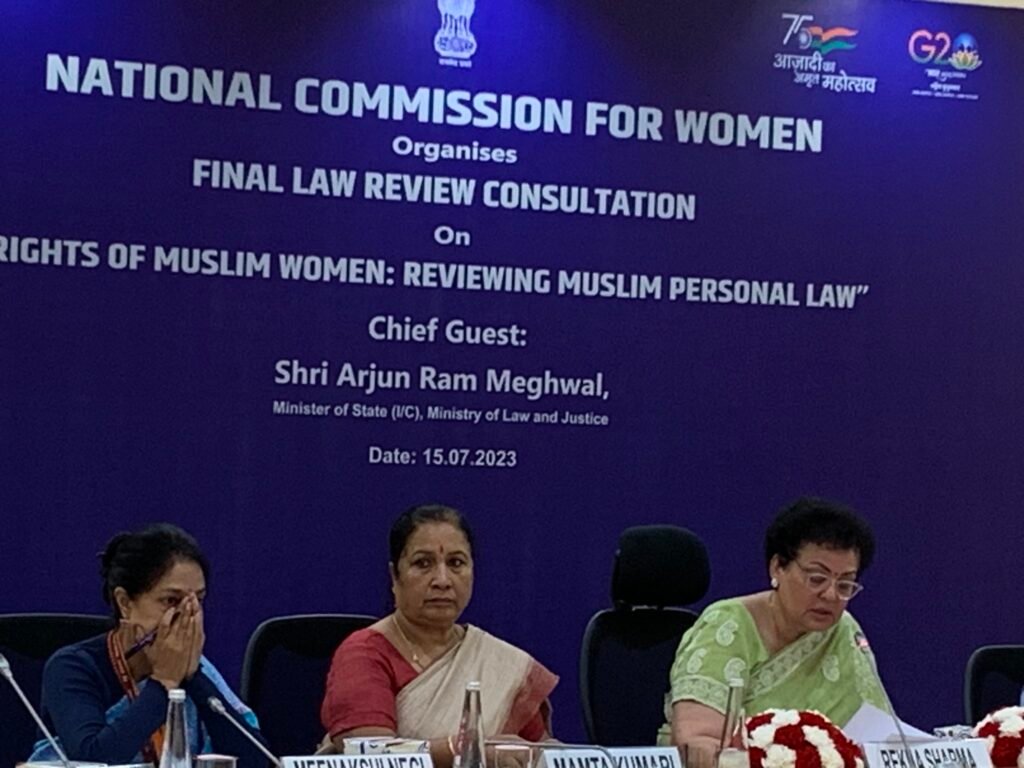Muslim personal laws have not been designed by any human being. These are God-made laws which are mentioned in the Qur’an. No one, not even an eminent Islamic scholar, can change these laws, says AIMPLB spokesperson Dr. Syed Qasim Rasool Ilyas
Waquar Hasan | Clarion India
NEW DELHI — The call by the National Commission for Women (NCW) at Saturday’s national consultation meeting for a codification of Muslim personal laws has drawn a sharp reaction from the All India Muslim Personal Law Board (AIMPLB).
The NCW said in a statement that during the meeting there was stress on an “unequivocal need for codification of Muslim Personal Law” and the “need to revisit the marriage and divorce law and guardianship law”.
Dr. Syed Qasim Rasool Ilyas, the AIMPLB spokesperson, told Clarion India that it was strange that the NCW held discussions on Muslim personal laws but did not invite the AIMPLB or any other credible Muslim organisation.
“The entire meeting was held on behalf of the Bharatiya Janata Party (BJP). The question arises why did they not invite any Muslim organisation,” he said.
The NCW consultation meeting followed Prime Minister Narendra Modi’s stress on the need to have a Uniform Civil Code. The Law Commission also sought public opinion on the UCC.
Media reports said the NCW meeting was attended by the Central government’s top law officer, Attorney General R. Venkataramani, senior law officers, vice chancellors of law universities, and representatives of some civil society organisations.
Addressing the meeting, NCW Chairperson Rekha Sharma said: “In our pursuit of equality, let’s reflect: if a law cannot serve the rights of Hindu, Christian, Sikh, and Buddhist women, can we truly say it is just for Muslim women? The need for codified laws is urgent. We need to work towards a legal framework that ensures equal rights for all, regardless of religion.”
The NCW meeting also emphasised the need for UCC.
“The discussion also emphasised that the absence of a UCC has perpetuated inequalities and inconsistencies in our diverse nation, hindering progress towards social harmony, economic growth, and gender justice,” the NCW chief was quoted by media reports as saying.
Ilyas, also a prominent community leader and national president of the Welfare Party of India, said organisations calling for changing and codifying Muslim personal laws have no locus standi in the matter; there is a specific organisation to deal with the issue.
“Muslim personal laws have not been designed by any human being. These are God-made laws which are mentioned in the Qur’an. No one, not even an eminent Islamic scholar, can change these laws,” he said.
Ilyas pointed out that when they talk about uniformity of laws, they should first ensure this uniformity in the Hindu code bill and the Constitution. The Constitution made a lot of relaxations. It talks about equality but it also gives reservation to the marginalised communities.
“The Constitution also safeguards religion-based laws as per Articles 25, 26 and 29. They talk about universal standards; who designed these standards? Tomorrow, you will say there should be one religion and one language for all. This is absurd,” he said.

